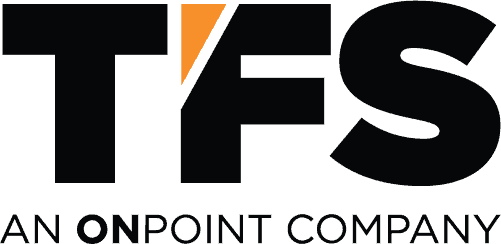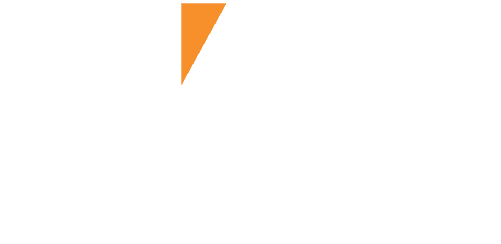Case Study: How TFS Helped a Distributor and Wholesaler Save Over $160k Annually
Problem Statement:
Growth is almost always accompanied by logistical challenges. This was certainly true for one TFS client, a large-scale distributor and wholesaler of electrical components. Years of acquisitions and expansions had left the company in need of greater control and visibility over its material-handling fleet. TFS had been entrusted with finding solutions to save money and establish a more effective and sustainable fleet management strategy.
Issues:
- A lack of fleet visibility across facilities resulted in unused and underused assets.
- With hundreds of leases held by multiple leasing companies, cost tracking was challenging.
- Employees mistakenly sold leased assets, resulting in premium buyouts to leasing companies.
Wins:
- An annual savings of $160,000 when multiple leasing companies were consolidated.
- Decreased downtime due to the implementation of a planned maintenance program.
- A centralized fleet management that tracks each asset’s status, including whether it’s leased, owned, or rented.
The Challenge:
The US client had expanded significantly over time due to organic growth and acquisitions. As a result, it had accumulated over 1200 mobile material handling assets divided primarily among 11 regional distribution centers, with the rest being used at smaller branches throughout its network. Of these assets, 250 lifts were leased through eight different companies; each was at a different stage in its lifecycle.
The TFS team did an initial assessment and provided the client with a full view of its material handling fleet. Our team also presented more cost-effective equipment leasing solutions and implemented fleet management programs to ensure the client utilized the fullest and best use of its assets and facility space.
The TFS team did an initial assessment and provided the client with a full view of its material handling fleet. Our team also presented more cost-effective equipment leasing solutions and implemented fleet management programs to ensure the client utilized the fullest and best use of its assets and facility space.
The Approach:
TFS’s first step was to obtain and analyze the client’s facility data to get the full breadth of their assets and physical inventories. Before we could solve its fleet management pain points, we needed to know exactly how many forklifts were in each location, along with the use patterns. We also examined the lease and rental agreements to understand the client’s financial obligations.
TFS soon realized that the client leased hundreds of MHEs through a number of companies and some additional rentals. No one there had a clear, centralized understanding of where its equipment came from, how many companies it was paying, or the total amount.
After crunching the numbers to create an in-depth snapshot of the client’s material handling assets, it was time to look for solutions. As we always do at TFS, we began by validating our findings with the client’s team and getting input.
After that step, we presented several strategies to save costs, optimize equipment, and better manage the fleet:
TFS soon realized that the client leased hundreds of MHEs through a number of companies and some additional rentals. No one there had a clear, centralized understanding of where its equipment came from, how many companies it was paying, or the total amount.
After crunching the numbers to create an in-depth snapshot of the client’s material handling assets, it was time to look for solutions. As we always do at TFS, we began by validating our findings with the client’s team and getting input.
After that step, we presented several strategies to save costs, optimize equipment, and better manage the fleet:
- Consolidating leases: The company’s leasing arrangements revealed that 60% of assets were in month-to-month holdover or evergreen arrangements. The remaining units were still bound by their current terms, but some were due to expire. In just 30 days, we did an immense amount of legwork to validate the client’s physical inventory and re-examine leasing arrangements. We ultimately found a way to centralize leasing commitments by reducing the original eight leasing companies down to one. This reduced baseline costs by nearly $14,000 a month ($160,000 annually).
- Proactive maintenance plan: TFS embedded a new preventative maintenance plan for all the client’s leased assets. While this might sound minor, this significantly reduced unplanned downtime because assets were constantly assessed for safety and efficiency and maintained properly throughout the duration of their new leases.
- Planned replacement plan: With greater visibility into the client’s leases, we were able to put together a planned replacement plan. This empowered the client to make informed decisions on what forklifts to keep, downsize, or replace when the time comes to do so. It also allowed them to better manage downtime.
- Repurposing underutilized assets: Wherever possible, our first goal is to help clients avoid buying new equipment. This means filling equipment gaps with assets that are either unused or underutilized in other facilities before leasing new MHEs. We applied this approach to this engagement and found assets that could be redistributed.
- Adding visibility: At the start of this engagement, the client lacked in-depth visibility into nearly half of its assets at a corporate level. Through attrition and turnover, acquisitions, and divestitures, it was increasingly difficult to get a sense of what assets were owned, leased, or rented.
The Result:
Thanks to this engagement, the client has the peace of mind knowing our fleet management specialists are keeping their fleets optimized across the entirety of its operations. Moreover, the client has real-time visibility into their fleet, including any financial structures, total costs and maintenance.
And by saving over $160,000 per year thanks to more effective and streamlined leasing solutions, its investment in bringing TFS to the table continues to pay off.
And by saving over $160,000 per year thanks to more effective and streamlined leasing solutions, its investment in bringing TFS to the table continues to pay off.
Get In Touch With Us
Our work is conducted both onsite and from our home base located in Perrysburg, Ohio.
By Phone & Email
Phone: 419.868.9953
Toll Free: 866.451.2085
Fax: 419.868.8912
Email: info@tfsglobal.com
By Mail
3235 Levis Commons Blvd., Perrysburg, OH 43551

